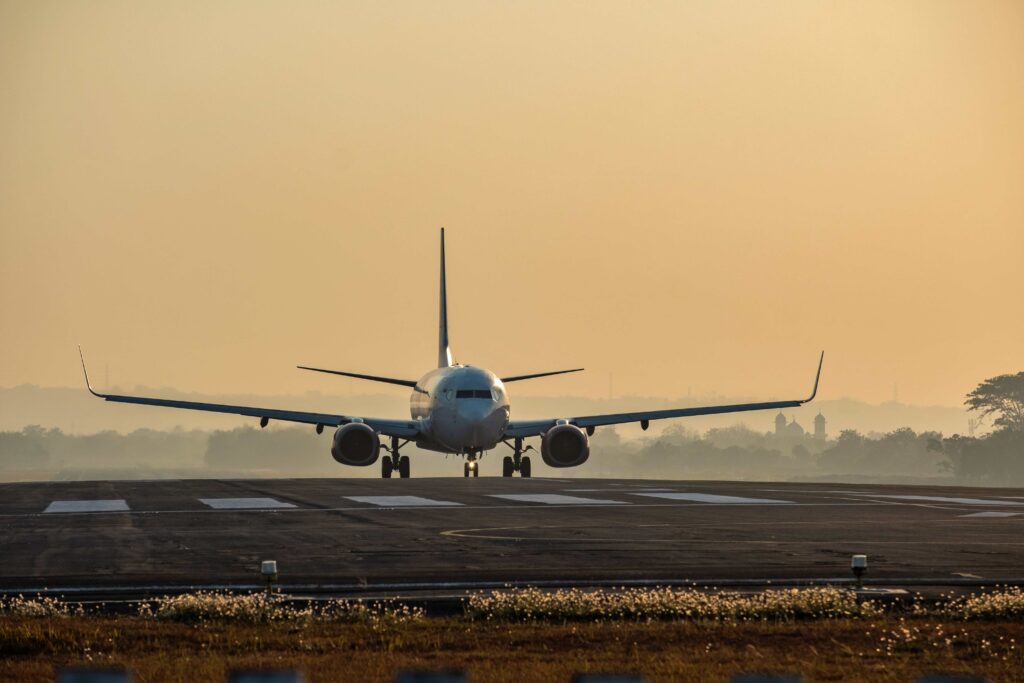Given the recent events the industry has faced in the first half of 2020, many people would question the timing and strategy tied with a carrier launch especially in the African aviation sector as a majority of businesses have adopted a defensive and conservative approach to ensure financial survival. However, former Comair CEO and founder of Lucid Ventures and Kulula.com – Gidon Novick – sees the current industry terrain as an “opportunity for creativity“ in launching an airline backed by efficiency and a “built from the ground up“ business model.
In an interview with Jon Howell the CEO of AviaDev Africa, Novick revealed his view and stance on this venture which will establish a brand new low-cost airline in South Africa‘s market.
“For many people around the world, this period has been a time to reflect. It has been a time to reset. There’s been a fundamental change in the world with two elements worthy of change. One being a re-look at the efficiency of the world and how things operate. For many of us, we have been put under pressure by COVID-19 in many respects, and so efficiency is forefront in our minds. On the flip side, there’s the opportunity for creativity. This is the time where traditional, normal ways of thinking don’t necessarily solve the problems that we are faced with and those two things have really got my mind racing towards the opportunity that I see in the airline industry,” expressed Novick with regard to the airline‘s conception and the sector‘s current climate.
Novick believes that there couldn‘t be a better time to start an airline as he views the challenges brought by COVID-19 as opportunities for his startup. He commented vibrantly saying, “Well there‘s been an industry reset, globally, with an unknown proportion of airlines in difficulty but certainly the majority, and South Africa is not the exception, but then on the input side obviously it’s opportunistic, in terms of the availability of all the key inputs into an airline, starting with aircraft facilities, and really high-quality people. Unfortunately, many people are really keen to get back into the industry. So, I think when you put all of that together there’s an opportunity to create something new, something fresh, something super-efficient. And something that resonates with where the market is today. It’s a very unique situation that we find ourselves in.”
But where would this South African based carrier fly to?
Novick provided a sound response to that looming question and landed on the Cape Town – Johannesburg route, stating that “it’s a proper route. It’s a good distance. You can’t easily drive between the two cities; it’s got a great mix of traffic. It’s also a route that I know fairly well and have a great comfort level with. So, that is certainly the starting route. It will be the focus of the business for some time and obviously, you know, it needs the bigger gauge.”
His stance holds a solid foundation as the route placed 11th as the busiest airline route in the world in 2019 and further brought in $185m in revenue for South African Airways over that year, as stated by Simply Flying.
However, it is interesting that the airline will veer to acquire a fleet of pre-owned but slightly larger narrowbodies in the size range of the A321s and B737-900s or the “odd 180 seaters “ as they lend themselves well to the Cape Town – Joburg route. Novick commented saying, “we won’t be using new aircraft to start. We will be using used aircraft. I think that’s the opportunity for now and frankly, in a market like South Africa, I’m not sure if it justifies new aircraft, certainly for some time to come. Our airfares are nowhere near in dollar terms to what they are in the northern markets so we have to adjust the model to what‘s right for this particular market. So it will be used aircraft whether they’re purchased or leased.“
Business model
A strong emphasis on the airline‘s approach to the new emerging market and its operational factors was made as it navigates its positions to a probable launch date. “I‘ve found through my experience that airlines tend to become less efficient the bigger they get, so there is something super-efficient about being small and certainly starting-off small, and then, more importantly, is the idea of flexibility. The market in my view has never been as uncertain as it is now in terms of where demand is going to be in the short, medium and longterm. So a flexible model that is able to adjust to market demand is critical,“ detailed Novick.
Additionally, the airline and its structures will pay close attention to its financing and debt obligations as the former CEO touched on these aspects saying, “one of the principles I‘ve really understood the older I got in the industry is the incredible damage that leverage can do to a business, particularly a business as volatile as an airline business. So really staying away from debt is absolutely key to the business model as well.
